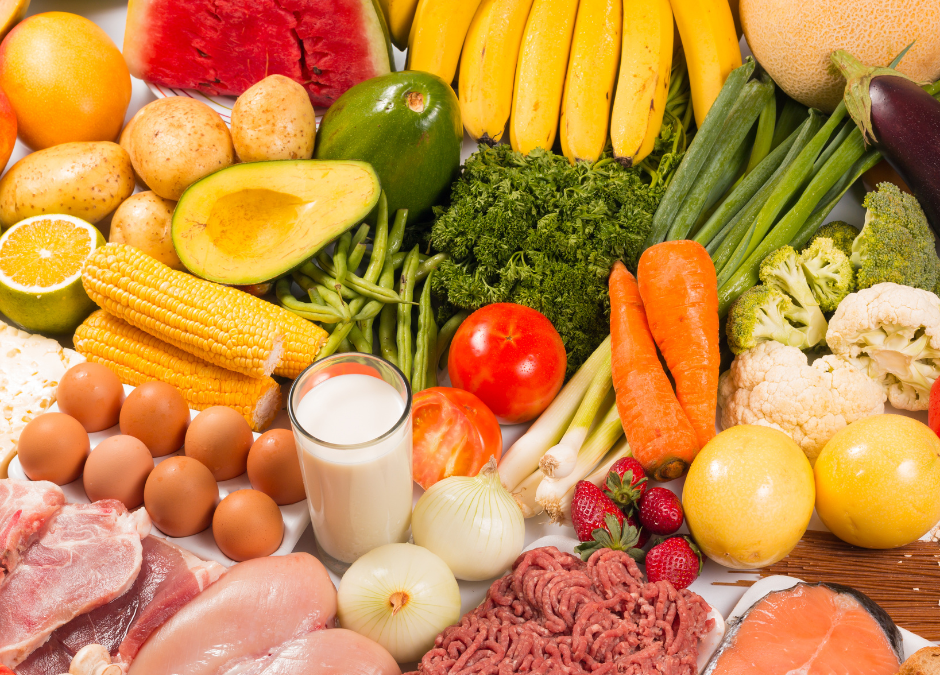We’ve put together a few simple dietary suggestions to help with changing nutritional needs as we we get older.
Protein
Protein helps build muscle, and is essential for the repair and maintenance of body tissues. As we age (and changes begin from the age of 25!) muscle mass starts to reduce, and fat levels increase. So consuming more protein can help to counteract this. In addition, muscle helps burn more energy, so it also assists with weight control.
Animal sources of protein include:
- red meat, fish, chicken, eggs, milk, cheese and yoghurt
Plant sources of protein include:
- soy protein (such as soybeans, tofu and soy milk)
- grains (quinoa, oats, barley, etc)
- nuts, seeds and pulses (dried beans, peas and lentils)
Protein and exercise
Protein helps to build and maintain muscle mass, especially if combined with resistance exercise. (If pelvic floor problems are stopping you from exercising, or you’re just not sure what would be appropriate, come and see us for advice).
You can find out more about exercise and ageing, and what sort of exercise is appropriate here
Calcium levels
As we age, we need more calcium. This is because the body breaks down bone at a faster rate. We need calcium throughout the life stages, to build healthy, strong bones. But consuming enough calcium rich foods is particularly important after menopause, to help reduce the risk of osteoporosis and fractures.
Good sources of calcium include:
- Milk and milk products such as yoghurt or cheese
- Calcium fortified dairy alternatives – eg soy or almond milk
- Tinned fish (with bones)
- Tofu (calcium set)
Other sources, with lower amounts of calcium include:
- certain nuts (almonds, brazils, hazelnuts)
- certain seeds (sesame, sunflower)
- green leafy vegetables
- wholegrain foods
- legumes (eg lentils, chickpeas etc)
Vitamin D
This has an important role in bone health as it helps our bodies to absorb calcium from food. However, it is very difficult to get enough Vitamin D from your diet alone. The best source of Vitamin D is sunlight. Try to get out in the sun for a few minutes every day, before 11 am and after 3 pm.
Foods rich in vitamin D include:
- oily fish
- eggs
- lean meat
- vitamin-D fortified dairy products (eg yellow-top milk)
If getting enough sun is difficult for you, discuss taking a Vitamin D supplement with your doctor.
Getting help
If you think you might be going short of any of these nutrients, or want to avoid eating specific foods, you could ask your doctor, registered nutritionist or dietitian for advice.
As well, if your pelvic floor problems are stopping you from doing exercise, come and see us. We’re happy to help.
Other helpful information
Bowel control problems that may be limiting exercise – click here
Information on perimenopause – click here
Long term pelvic floor care – click here
References
https://nutritionfoundation.org.nz/
https://stories.jeanhailes.org.au/five-dietary-tweaks-for-women-over-50/index.html

